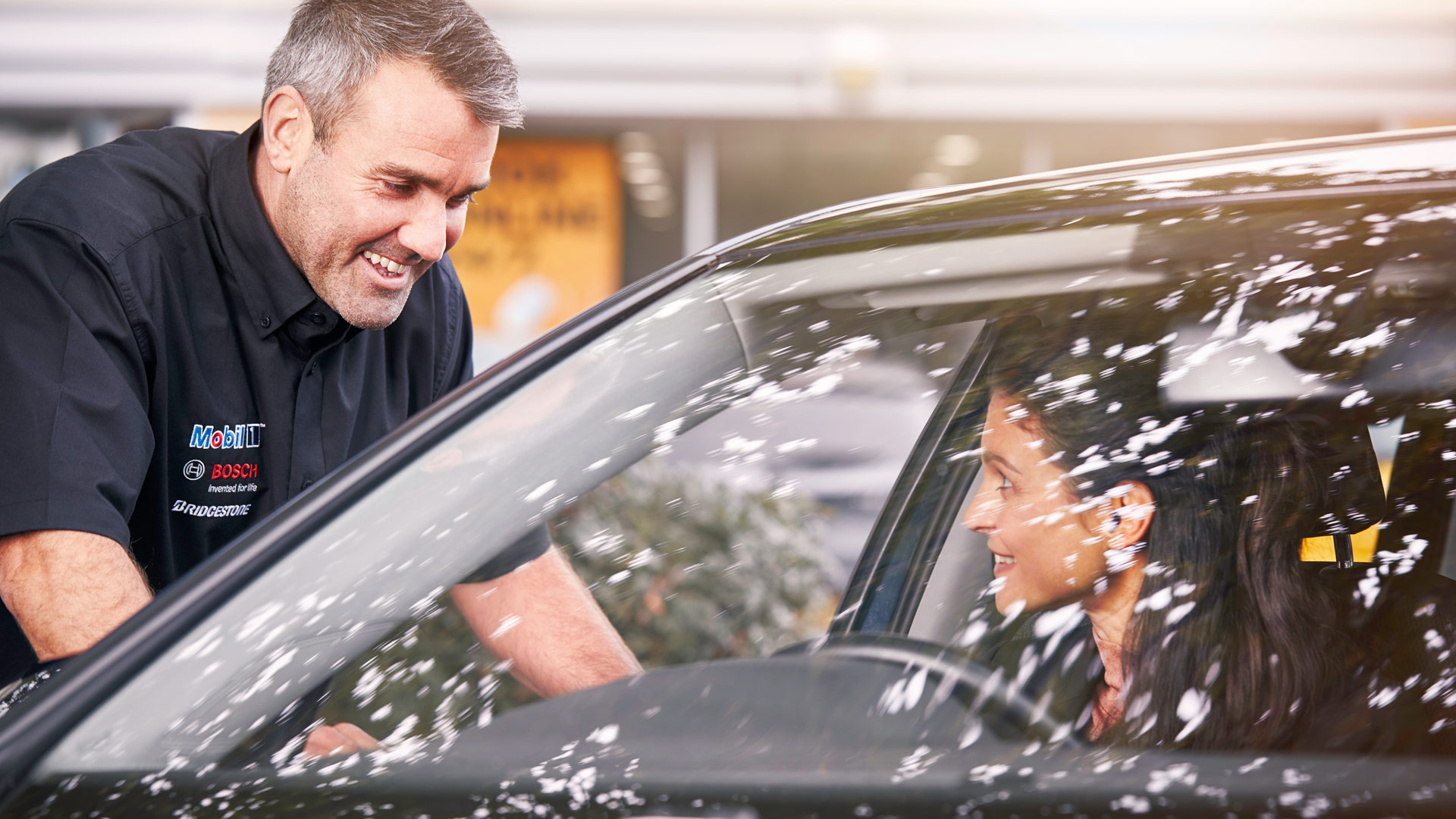Motoring Market
Halfords Group addresses two distinct areas of the UK's highly-fragmented motoring market – car parts, accessories, consumables and technology; and car servicing and aftercare. From the perspective of the former, there is no single equivalent competitor selling all of our product ranges. In respect of the latter, there are over 30,000 garages in the UK, an estimated two-thirds of which are small independents.
Car Parts, Accessories, Consumables and Technology

Key Facts
Our Approach
Car Parts, Accessories, Consumables and Technology
Our strong heritage and brand mean that Halfords is a destination for consumers who want inspiration and support with their vehicles. We continue to make progress in our markets through investment in our stores and colleagues to help deliver innovative products and services to our customers when and where they want them. Whilst some of the traditional motoring product markets are in decline, there is opportunity for innovative, unique and differentiated products to be brought to market. Halfords is also seeing an increase in service-related sales as more people are preferring to have an expert fit or install products as opposed to performing it themselves.
Key

Autocentres

Retail Motoring Services
Car Servicing
and Aftercare
Key Facts
Our Approach
Car Servicing and Aftercare
The automotive servicing market is large and highly fragmented with no clear leader, and with only 2% share, there is significant opportunity for Halfords to grow. Increasing car complexity, accelerated by the transition to electric, is expected to drive growth in this market. Our goal is to operate from 1,000 service locations in the UK and ROI, whether a Retail store, a garage or a mobile van. This will enable us to deliver customers the services they want at a location convenient to them.
We will continue to invest in equipment and colleague training in order to remain at the forefront of technological changes. This will give us a competitive advantage in this fragmented market dominated by independent operators.
Specifically, we have made significant progress in providing industry-accredited training to Autocentres colleagues in the servicing and maintenance of hybrid and electric vehicles, with the majority of our centres now capable of servicing hybrid and electric vehicles.

Motoring Market – Competitor Landscape
Car parts, accessories, consumables and technology
- Limited number of specialists but a highly diverse and competitive set of retailers (e.g. Amazon) selling generalist product ranges
- Limited retail bricks and mortar competition
- Wholesalers and generalists moving into specialist retail markets with strong omnichannel offer
- Supermarkets and garage forecourts continue to sell a limited range of high-volume, high-margin products
- Independent garages offering car parts and associated fitting
How is Halfords Group different?
Our heritage of over 125 years has established Halfords as a household name, with over 90% of the UK population living within 20 minutes of a Halfords store. We have many outstanding strengths that differentiate us, notably our exclusive product ranges and our colleague expertise. Significantly, we have an established and growing ability to provide services on demand in-store.
Car Servicing and Aftercare
- Technological advancements limit scope for effective delivery by small independent garages
- Car dealerships expanding into used car servicing
- Some evidence of sales aggregation (e.g. My Car Needs A…) and mobile services entrants
How is Halfords Group different?
Halfords has a unique ability to offer automotive services from a variety of locations – our retail stores, garages and mobile vans. In our accelerated strategy, we announced an ambition to increase our services footprint to over 1,000 locations in the medium-term, including 550 garages, 200 vans and our existing Retail stores. Via our Autocentres, Halfords Group offers great value and convenience for UK consumers of car servicing, repairs and MOT compliance. The strength of our brand and the scale of our store, garage and mobile van estate enables us to invest in the most up-to-date equipment and technology with the majority of centres now equipped to deal with electric and hybrid vehicle servicing. Our Halfords Mobile Expert vans deliver elements of car fitting and servicing, such as battery replacement, tyres and diagnostic checks, direct to the customer at their home or workplace.
Long-term market trends
As UK motorists become more engaged with issues affecting their impact on the environment, they are seeking ways of mitigating their carbon footprint. The COVID-19 pandemic is forcing motorists to avoid public transport due to health concerns, but this means there will inevitably be an increase in the number of cars on the road - something that many are keen to avoid. Despite the Government putting emphasis on commuting by walking and cycling this is not going to be possible for many people, meaning a car will be the only option for those wishing to avoid public transport. This is likely to lead to higher car usage in the medium-term, potentially increasing the size of the car parc and the requirement for servicing, maintenance and repairs.
Electric vehicles continue to rise in popularity with registrations up 144% for 2019, however they still only represent 1.6% of the total car parc. The country is gearing up for electrification, with more charging points being installed nationwide, however the small share of the car parc shows there is a long way to go before we reach the 50–70% share targeted by the Government in the next 10 years.
Long-term trends show that cars are becoming more complex. Alongside advances in engine technology, cars are being equipped with an increasing number of intelligent features in order to meet the rising expectation of consumers. The long-term expectation will be that all devices will offer an integrated 'always-on' flow of information.
Autonomous cars, whilst a futuristic concept, are the focus of significant investment by global innovators such as Google and Tesla. Many new cars are now partially-autonomous, providing lane change assistance, parking assistance and adaptive cruise control. There is a high probability that children born today may never need to drive a car.
The scale of these disruptive changes means it is becoming less likely that car owners will possess the knowledge or equipment to replace worn parts or service their own cars in the future, increasing the demand for a 'do it for me' offering. It will also be difficult for small, independent garages to invest in the technology and training required to service and repair cars, giving an advantage to a well-invested national chain such as Halfords.